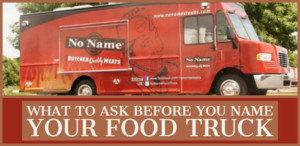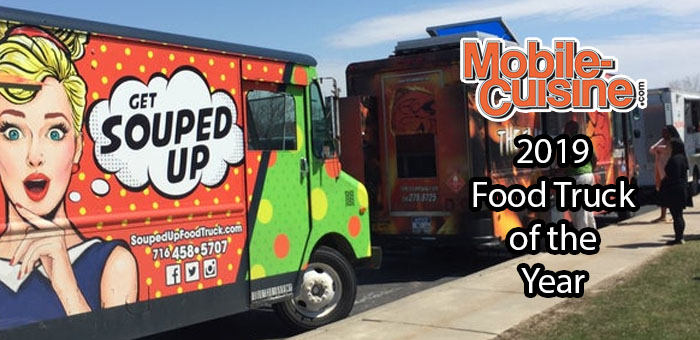How much will it cost to start a food truck? That answer depends on a lot of factors including where you plan to operate and whether you decide to invest in a food truck, concession trailer, or outfit a mobile food kitchen yourself.
As a general rule of thumb, here’s what you can expect to pay to start a food truck:
- New Food Truck with Cooking Equipment installed by a Builder: $80,000 – $175,000
- Used Food Truck with Cooking Equipment Installed by Builder: $50,000 – $80,000
- New Concession Trailer with Cooking Equipment Installed by Builder: $30,000 – $80,000
- Used Concession Trailer with Cooking Equipment Installed by Builder: $20,000 – $60,000
By doing a build yourself, you can expect to save between $15,000 – $35,000 on labor. In other words, feel free to subtract this amount from the estimates above. Also keep in mind that the age of a food truck unit, size, model, and condition are all variable factors in determining cost.
If you’re planning to have a mobile restaurant business, you could be torn between a fully-equipped manufactured food truck or building your own. Each choice has its pros and cons, but ultimately how much time you have to outfit a unit, experience, and budget should play a role in making the decision. If you love projects or building things and have experience in the construction industry, you have many of the skills required to build a food truck. But is this a project you really want to take on?
Keep in mind that there are additional costs aside from these items and equipment that you need to consider (e.g. construction tools, labor fees, permits & licensing). I evaluate the total cost of starting a food truck business below with costs broken out by line item below. Let’s find out exactly how much your food truck will cost together.
Page Contents
Detailed Food Truck Business Startup Costs
This table may be useful for those who want to know the additional costs to establish a food truck business, excluding the cost of the food truck equipment and materials.
One-Time Food Truck Costs
| Food Truck Startup Item | Approximate Cost |
| Vehicle Inspection | $100 to $500 |
| Generator | $1,500 to $10,000 |
| POS Software System & Hardware | $500 to $1500 |
| Food Truck Paint | $1,000 to $3,000 |
| Truck Wrap | $2,500 to $5,000 |
| Initial Food Purchases | $500 to $2,000 |
| Utensils, Papers & Goods | $500 to $2,000 |
| Website Design | $500 to $3,500 |
| Initial Office Equipment & Supplies | $200 to $1,000 |
| Advertising & Public Relations | $500 to $2,000 |
| License and Permits | $500 to $1,500 |
| Professional, Legal & Consulting Fees | $500 to $2,000 |
Recurring Monthly Costs After Opening
| Payroll (Up to Four Staff Members) | $0 to $8,500 per month |
| Commercial Kitchen & Commissary Rent (If Needed) | $0 to $3,000 per month |
| Monthly Credit Card Processing Fees | Around 3% of sales per month |
| Fuel | $250 to $600 per month |
| Insurance | $100 – $300 per month |
| Cell phone / Communication | $60 – $100 per month |
| Permits & Licensing (Annual Cost) | $500 to $10,000 depending on location |
| Total Estimated Monthly Cost | $460 – $13,500 |
One thing to keep in mind is that most food trucks start out under the owner / operator model. If you fit into this category, you won’t need to worry as payroll in the early days.
One smart strategy to reduce startup cost is to look for gently used mobile food units because they are substantially less expensive, but still in good condition. This might be a food truck owner that invested in a new vehicle, operated the business for 1 – 2 seasons, and decided they didn’t like the business. This happens more than you might expect.
If you can find a used unit that already has the right kitchen installed for your menu then that’s the ideal situation since you can get a discount on price and don’t need to take the time / expense to modify the truck. But it can be challenging to find a used food truck with the exact kitchen layout and equipment you need if you have a less common menu. If you plan to serve tacos on a truck, finding a used unit that fits your needs will be easier.
How to Fund Your Food Truck Business

Most people don’t have enough money to purchase a food truck or concession trailer outright. As a result, most vendors must finance their food truck in some way. Before giving a business loan, most lenders want a business plan, so make sure you have one ready, as well as the amount you require and your credit history. Alternatively, if you have good credit then you can likely get a food truck loan similar to the way you would an auto-loan. Most food truck manufacturers can aid you with financing.
Here are some of the most common financing options for aspiring food truck entrepreneurs:
- Personal loan: If you have a strong credit score and require less than $50,000, this is a good option.
- Business credit cards: A business credit card may be a suitable alternative if you are good at paying off debt.
- Equipment loan or a financing program: Some truck dealers or equipment financiers may give you a loan to buy a truck.
- Rollover for business startups or ROBS: If you have more than $50,000 in a retirement account, you can open a ROBS, which allows you to use the money to support your business without incurring early withdrawal penalties.
- A microloan from Small Business Administration or SBA: Microloans are far smaller than traditional business loans, yet they may be enough to cover the costs of starting a food truck. For loans under $50,000, look into the SBA’s Microloan Program.
- Look for investors: Finding investors for your food truck business, whether it’s a friend or a family member, takes planning. Prepare a great business plan and a compelling concept to persuade investors to fund your startup.
- Leasing: You can lease a used truck with basic equipment rather than buying your own truck. You pay a monthly fee to drive the vehicle, and some leases allow you to buy the truck at the end of the lease period.
- Crowdfunding: GoFundMe, Kickstarter, and LendingClub are popular options, you can create a crowdfunding campaign on these platforms. Introduce your company idea in a unique way, and offer incentives to encourage people to contribute.
It’s critical to plan out exactly how the funds will be used, such as for acquiring a truck, cooking equipment, or employee salaries, as well as how you plan to repay the borrowed funds, regardless of how you want to finance your food truck business. The amount of gross revenue you need to bring in each month to cover expenses and any loan payments should be included in your financial estimations.
Is It Cheaper To Build A Food Truck Than Buy A Manufactured Unit?
On average, purchasing a kitchen-equipped food truck can cost anywhere from $50,000 – $175,000 depending on the type of manufacturer, how you customized it to fit your personal and business needs, and your local permit and licensing requirements.
Building your own food truck might be cheaper but you have to consider the time, skills, and effort that come with it. Buying a manufactured unit might save you some time and effort but it could cost you a lot more. It all comes down to your willingness and ability to build your own and what your budget is. To help you decide, we’ll go over the advantages and disadvantages of buying a manufactured one versus building it your own.
Building Your Own Food Truck

If you have the skills, mechanical experience, and you like building stuff or DIYs, building your own food truck could be the right choice for you. Learn the advantages and disadvantages of building your own food truck below.
You Might Like: How to Build a Food Truck from Scratch in 10 Steps (Video Series)
Advantages
- You may also be able to cut some of the costs (e.g. labor fees)
- If you have experience in electrical wiring, plumbing, and construction, this option may be for you.
- You will understand and familiarize the inner workings of your truck and how it works.
- Having the one who built your own truck, you’ll have much more in-depth knowledge on how to fix it in case there’s a breakdown.
- You’ll get to personalize every detail to suit your needs and budget.
Disadvantages
- If you don’t already have access to the necessary tools, buying these tools can be expensive.
- If you’re not experienced with mechanics or how motorized vehicles work this option may not be for you.
- If you have no experience with doing electrical or plumbing work, it can be dangerous. You’ll want to hire out these parts of the build out, which will increase cost.
- You’ll have lots of decisions to make from planning the layout design of your truck, choosing the materials.
- Not as convenient and time-saving as buying a manufactured unit. There are no warranties on a DIY build in the event something doesn’t work.
To give you a sense of how much planning and equipment decisions you’ll need to make, I’ve included a list of equipment purchased by a food truck owner who built his own concession trailer. You will need order and install equipment similar to this list.
| Food Truck Business Item | Cost data provided by a food truck owner. |
| Trailer | $14,900 |
| Floor and Adhesive | $258.66 |
| 1 outdoor light Menards | $37.5 |
| 1 outdoor light menards | $38.05 |
| 3 Compartment Sink | $532.86 |
| Breaker Panel | $30 |
| Generator Plug | $69.37 |
| Propane Splitter | $53.11 |
| 3 Compartment Faucet | $52.06 |
| 4 pieces FRP 3 trims | $282.85 |
| Gen Carrier and W.H. | $394.91 |
| Romex | $34.74 |
| Insulation | $41.32 |
| Dish Rack | $100 |
| Towel Dispenser | $35 |
| L Brackets | $30 |
| Knife Holder | $10 |
| Ticket Holder | $5 |
| White Bins | $105 |
| Hand Sink | $80 |
| Plumbing Drain Valves | $80 |
| Plumbing Tools | $149.99 |
| 4 Tables and 2 shelves | $1,233.73 |
| 2nd Adhesive Jug | $34.00 |
| Water Pump | $106.24 |
| Water Tanks | $126 |
| Prep Table Feet | $150 |
| Wall Mount Gloves | $10 |
| 4 can lights | $40 |
| Rope Light more romex | $103 |
| Outlets and Switches | $45 |
| Concession Window | $1,189.00 |
| Outside Shelf | $269 |
| 6 Foot Hood | $1,335.00 |
| Stainless Steel | $501.44 |
| stainless steel trim parts | $483.35 |
| 4 foot fridge | $420 |
| Propane Hoses and Holder | $64.27 |
| Gas Fittings | $140.58 |
| Extra Plumbing Stuff | $20.24 |
| Dormont Post Set Fridge | $55.00 |
| Fire Suppression | $2,500.00 |
| Tentative Cooking Equipment | $1,892.00 |
| Class K and Class ABC ext. | $212.64 |
| Propane Tanks | $95.00 |
| Flange Feet for Appliances | $60.00 |
| Stainless Steel Nuts and Bolts | $30.00 |
| Trailer Breakaway Cable | $10.00 |
| Flat Aluminum Pi | $100.00 |
| Total Cost: | $23,645.91 |
Building your own food truck (trailer, electrical needs, flooring materials, gas lines, plumbing needs, and other food truck equipment mentioned in Table #1) could cost around $13,600. Additional costs (Table #2), excluding the aforementioned items could cost around $16,000 – $54,000. In estimation, a DIY or build-your-own food truck could cost as low as $30,000, as compared to the $50,000 – $175,000 spent when purchasing a fully-equipped food truck.
The cost of starting a food truck business varies based on your location, what cooking equipment you require, and what type of truck you purchase. The cost of the trailer you purchase usually makes a big difference to the total cost.
Buying A Manufactured Unit

If you have the money, buying a new food truck unit is a good investment that will help you avoid the hassle that comes with building your own. Learn the advantages and disadvantages of buying a newly manufactured unit.
Advantages
- Pre-done retrofitting allows you to see if the kitchen layout works for you.
- Kitchen equipment, electrical and plumbing systems, and other food truck equipment are already installed.
- Buying a fully-equipped food truck cuts the decision-making process down.
- It saves you the time and effort needed to build your own.
Disadvantages
- There’s a possible large financial investment. Purchasing a kitchen-equipped food truck can cost anywhere from $50,000 – $175,000.
- Little knowledge of the inner workings of your food truck.
- If the food truck is already retrofitted, you won’t be able to customize it yourself.
Final thoughts
Getting into the food truck business is a new and exciting opportunity for entrepreneurs to pursue their culinary dreams. But you need to estimate your total startup costs before traveling too far down the business formation process. A good business always starts with an accurate plan.
Choosing whether to buy a new food truck unit or build one is one of the most important decisions to make when entering the food truck business. While each option has pros and cons, it ultimately comes down to personal preference and the budget you’re willing to invest.




